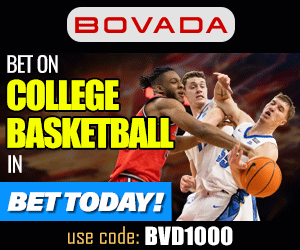- The NCAA has strongly opposed compensation for student-athletes in the past.
- Because of California, the NCAA was required to reexamine their position.
- Many regulations are still to be created regarding the payment of student-athletes.
INDIANAPOLIS – The NCAA is changing its viewpoint surrounding the payments of collegiate athletes. While the sports governing organization didn’t approve a physical game check, they did unanimously vote to support student-athletes receiving compensation for their name, image, and likeness on Tuesday.
The NCAA is responsible for governing more than 1,200 schools and nearly half of a million student-athletes. Their goal is to move forward with this progressive movement but ensuring that the students are not treated as employees.
“As a national governing body, the NCAA is uniquely positioned to modify its rules to ensure fairness and a level playing field for student-athletes,” said Mark Emmert, the NCAA’s president. “The board’s action today creates a path to enhance opportunities for student-athletes while ensuring they compete against students and not professionals.”
California And The NFL Pushing The NCAA Forward
This board decision came after a month of downplaying similar legislation in the California statehouse. The state even received a letter from the NCAA explaining how the Fair Pay to Play Act could create an unbalanced playing field between the schools with athletes who have agents and those that don’t.
Other states, like North Carolina, have introduced similar legislation that would prohibit schools from keeping athletes from accepting benefits based on their name, image, and likeness. This widespread approval and support for the change required the NCAA to act quickly.
Even with the decision from the NCAA, they believe that California’s law will be challenged in court, as their claim is that it is unconstitutional.
In addition to states, the NFL also had some pull in sending the NCAA into acceptance, though. On Monday, the NFL Players Association and National College Players Association made it clear they would be figuring out methods of revenue sharing for student-athletes. This would come heavily from the sale of the player’s name, image, and likeness – which should be taxed according to North Carolina Senator Richard Burr.
“If college athletes are going to make money off their likenesses while in school, their scholarships should be treated like income,” said Burr. “I’ll be introducing legislation that subjects scholarships given to athletes who choose to ‘cash in’ to income taxes.”
Burr’s viewpoint opens up the discussion that just because the NCAA has jumped on board, it doesn’t mean the story ends here. In fact, it is more so the beginning, as many regulations still must be put in place.
Changing The NCAA Forever
The NCAA has created a committee that will receive recommendations and advice into dealing with the various regulations on both the state and federal level. Their goal is to modernize but within a set of guidelines.
The goals of the group are to determine how to create an all-encompassing standard that will work equally for all types of athletes, genders, and divisions.
The NCAA has been strongly opposed to permitting athletes to make a profit, so this will come as a major change to the organization. Still, the mindset from the previous NCAA Board of Governors meeting made it clear they want their three divisions to look at creating rules before a January 2021 deadline.
“We’re going to continue to communicate with legislators at the state and federal level,” said Emmert. “That’s one of the things that the board is asking of me and my staff and the membership in general, and hopefully we can avoid anything that’s a direct conflict with our state legislators.”
Rules surrounding various topics will range from the school’s involvement with a paid athlete and which businesses or types of businesses would be permitted to work with athletes to how these payments will keep a student on amateur status.
Additionally, while the NCAA has not mentioned anything of the nature, many are wondering how they will handle previous punishments that stemmed around this exact issue. Will Ohio State receive back their 12 vacated wins in the 2010 football season? What about the return of the 2005 Heisman title and trophy to Reggie Bush? How about the lack of a football program at SMU for years due to the death penalty after the Eric Dickerson years?
All of these major headlines stemmed around athletes receiving improper benefits, how will the NCAA act on past decisions that are no longer an issue of the present? What about the potential unionization of student-athletes from those are less likely to receive some sort of benefit?
However, the largest issue moving forward will certainly stem around recruiting paid athletes.
“One of the most distinctive things about college sports is this whole recruitment process,” said Emmert. “The whole notion of trying to maintain as fair a playing field as you can is really central to all this. Recruiting inducements [are] something everybody is deeply concerned about.”
While this can be monitored closer with certain regulations, what is stopping alumni groups from getting into dirty recruiting? All it would take is the alumni explaining to a student-athlete that they have 100,000 other alumni ready to purchase a hat with their name on it, a jersey with their number, or a commercial deal. This isn’t directly paying the athlete, but it is enticing a student to sign at their school with the benefits to come.
As it is clear, the NCAA and the state legislatures still have plenty of work to do. With a year and a half to figure out all of the details before it goes into effect, expect this to be a developing story that surrounds legal sports betting as well.
Advertising Disclosure
In order to provide you with the best independent sports betting news and content LegalSportsBetting.com may receive a commission from partners when you make a purchase through a link on our site.
News tags: California | Eric Dickerson | Fair Pay To Play | Mark Emmert | NCAA | North Carolina | Ohio State University | Reggie Bush | Richard Burr

After spending time scouting college basketball for Florida State University under Leonard Hamilton and the University of Alabama under Anthony Grant, Michael started writing focused on NBA content. A graduate of both schools, he now covers legal sports betting bills, sports betting revenue data, tennis betting odds, and sportsbook reviews. Michael likes to play basketball, hike, and kayak when not glued to the TV watching midlevel tennis matches.



 College Football Betting
College Football Betting Best Online Sports Betting
Best Online Sports Betting Best Legal NFL Betting
Best Legal NFL Betting States With Legal Sports Betting
States With Legal Sports Betting Sports Betting Events
Sports Betting Events




